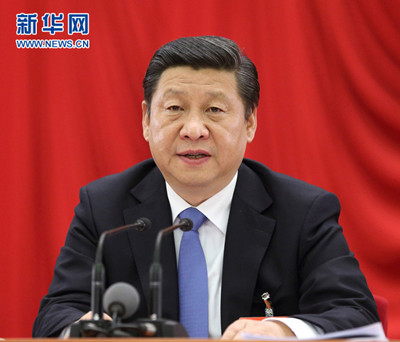China reforms to deepen
 0 Comment(s)
0 Comment(s) Print
Print E-mail Xinhua, November 12, 2013
E-mail Xinhua, November 12, 2013
The 18th Central Committee of the Communist Party of China (CPC) on Tuesday approved a decision on "major issues concerning comprehensively deepening reforms" at the close of their four-day meeting.
 |
|
Xi Jinping, general secretary of the CPC Central Committee, delivered a work report to the third Plenary Session of the 18th CPC Central Committee, held from Nov. 9 to 12 in Beijing. [Photo/Xinhua] |
Entrusted by the Political Bureau of the CPC Central Committee, Xi Jinping, general secretary of the CPC Central Committee, delivered a work report to the third Plenary Session of the 18th CPC Central Committee, held from Nov. 9 to 12 in Beijing.
The general objective of the approved reforms is to improve and develop socialism with Chinese characteristics and push on with modernization of the country's governing system and capabilities, according to the communique issued after the session.
China must build on the paramount reality that it remains in the primary stage of socialism and will long remain so while pursuing comprehensive, deeper reform. China must stick to the strategic judgement that development is still the key to solving all problems in China, the communique said.
It is most important to adhere to the leadership of the CPC, it said.
Economic reform is key, and the core solution is the proper relationship between the government and the market, leaving the market to play the decisive role in allocation of resources and the government to play a better role, it said.
Decisive results must be achieved in key sectors, and a well-developed, scientific, procedure-based and effective framework must be in place by 2020 to ensure institutions in all sectors be more mature, according to the communique.
China will stick to the dominant role of public ownership, playing the leading role of the state-owned economy, while encouraging, supporting and guiding the non-public sector, enhancing its vitality and creativity, it said.
A united and open market system with orderly competition will be built so that the market will play a "decisive" role in allocating resources, according to the communique.
Government functions must be transformed in a manner to build a law-based and service-oriented government.
The reform also includes building a modern fiscal system that supports the initiative of both central and local governments.
China aims to improve a new type of relations between industry and agriculture and between urban and rural areas.





